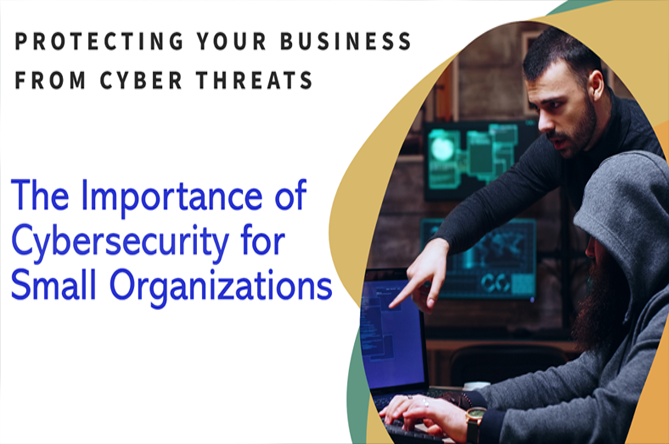We Are a Small Organization—Do We Really Need Cybersecurity?
Absolutely. Cybersecurity is not just for big corporations. In fact, small and medium-sized organizations are increasingly targeted by cybercriminals because they often lack the defenses of larger companies. Investing in cybersecurity is critical to protecting your data, reputation, and financial stability. Here’s why cybersecurity is essential for organizations of any size.
1. Small Organizations Are Prime Targets
Cybercriminals often see smaller businesses as “soft targets” because they assume fewer security protocols are in place. Hackers know that small organizations may lack the resources or advanced technology of larger companies, making them more vulnerable. Even a small breach could give attackers access to customer data, financial records, or entry to larger networks through third-party partnerships.
2. Protecting Customer Trust and Confidential Information
If your organization handles any kind of customer or employee data—such as payment details, personal information, or confidential records—it’s essential to protect it. A single data breach can compromise sensitive information, leading to loss of trust, legal ramifications, and regulatory fines. Cybersecurity measures safeguard data and reinforce the trust your customers place in your brand.
3. Preventing Reputational Damage
The impact of a data breach goes beyond financial loss—it can severely harm your reputation. Customers expect their data to be secure, and a breach can lead to a significant loss of confidence in your business. Word of a data breach can spread quickly, both within your customer base and online, making it hard to rebuild your image. Proactive cybersecurity protects your reputation by reducing the risk of breaches and showing customers that you prioritize their security.
4. Financial Impact of a Cyberattack on Small Organizations
The financial consequences of a cyberattack can be devastating for small businesses, with costs including data recovery, legal fees, and loss of revenue. Studies show that more than half of small businesses hit by cyberattacks struggle to stay operational, and many close within six months of a breach. Proactive cybersecurity is a crucial investment that can save your business from overwhelming financial loss.
5. Ransomware and Malware Are Serious Threats
Cybercriminals often target small businesses with ransomware and malware because they’re more likely to pay a ransom to recover their data quickly. These attacks can cripple operations, halt productivity, and disrupt customer service. Having cybersecurity measures in place can protect your systems from such attacks and ensure business continuity.
6. Improved Resilience and Business Continuity
With a solid cybersecurity strategy, you’re prepared to identify and respond to threats quickly, minimizing potential disruptions to daily operations. Cybersecurity tools and protocols help you stay ahead of risks, maintain productivity, and secure critical assets, allowing your business to continue operating smoothly.
7. Regulatory Compliance and Legal Requirements
Even as a small organization, you may be required to comply with data protection laws and industry regulations. If your business operates in healthcare, finance, or retail, for example, robust cybersecurity may be legally mandated. Complying with these regulations not only helps avoid penalties but also demonstrates your commitment to protecting customer data.
Conclusion
Cybersecurity is essential for businesses of all sizes, including small organizations. By implementing even basic security measures, you reduce the risk of costly data breaches, protect customer trust, and ensure your business remains resilient in the face of modern cyber threats. Cybersecurity is not just a defense—it’s an investment in your business’s future and reputation.















